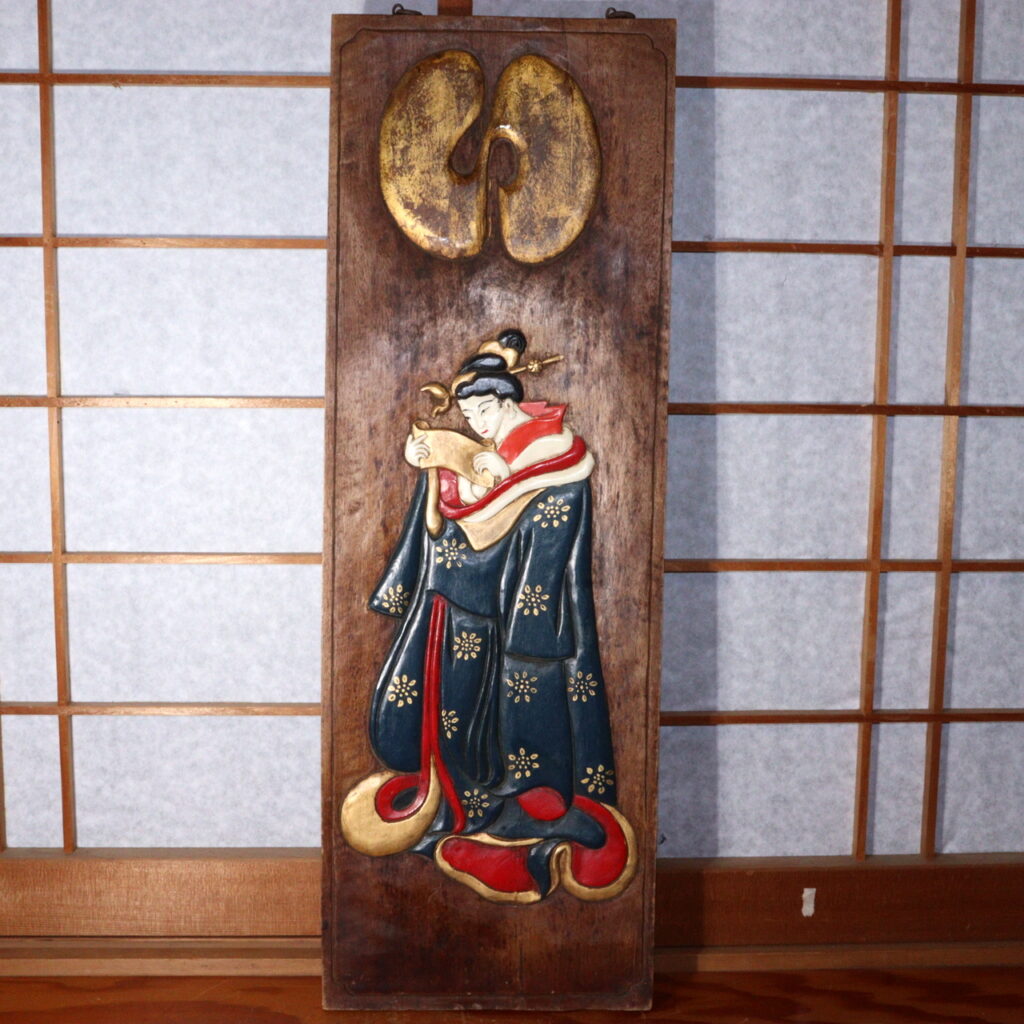
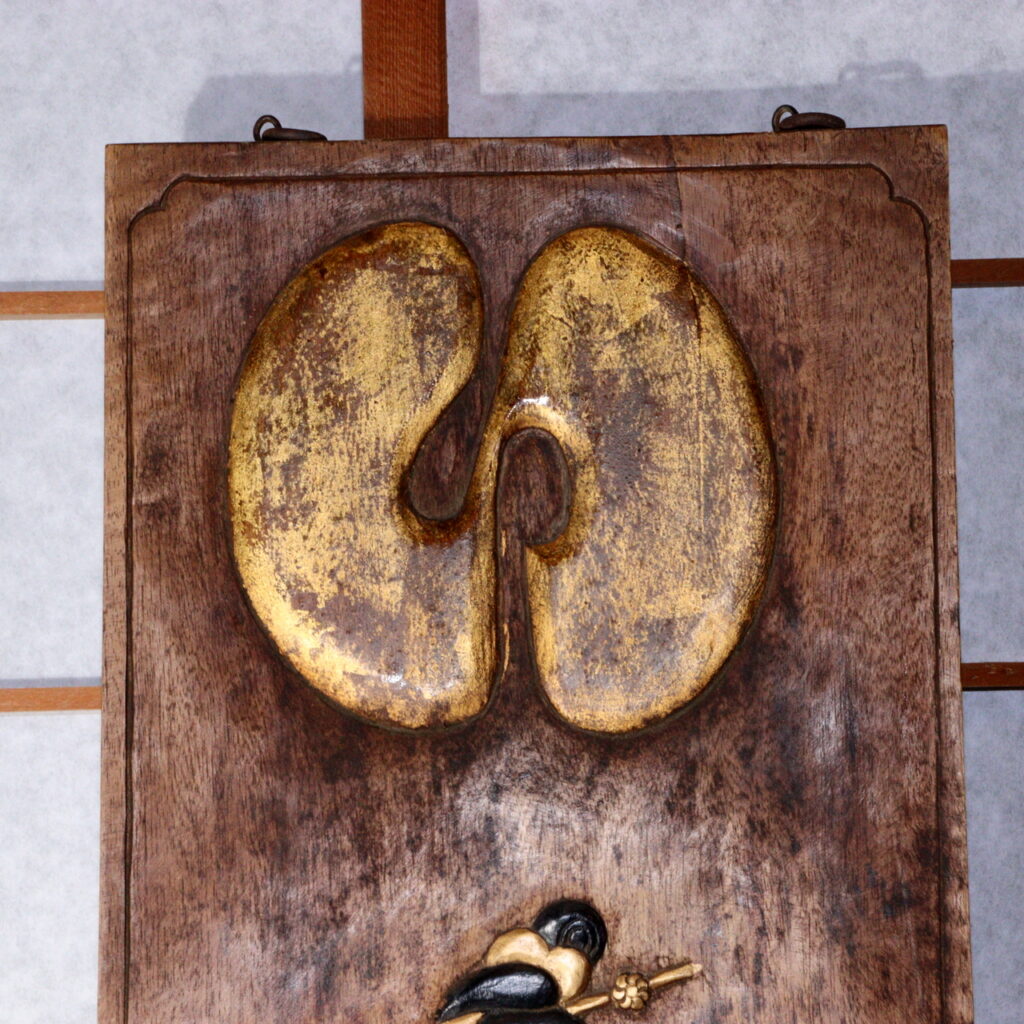
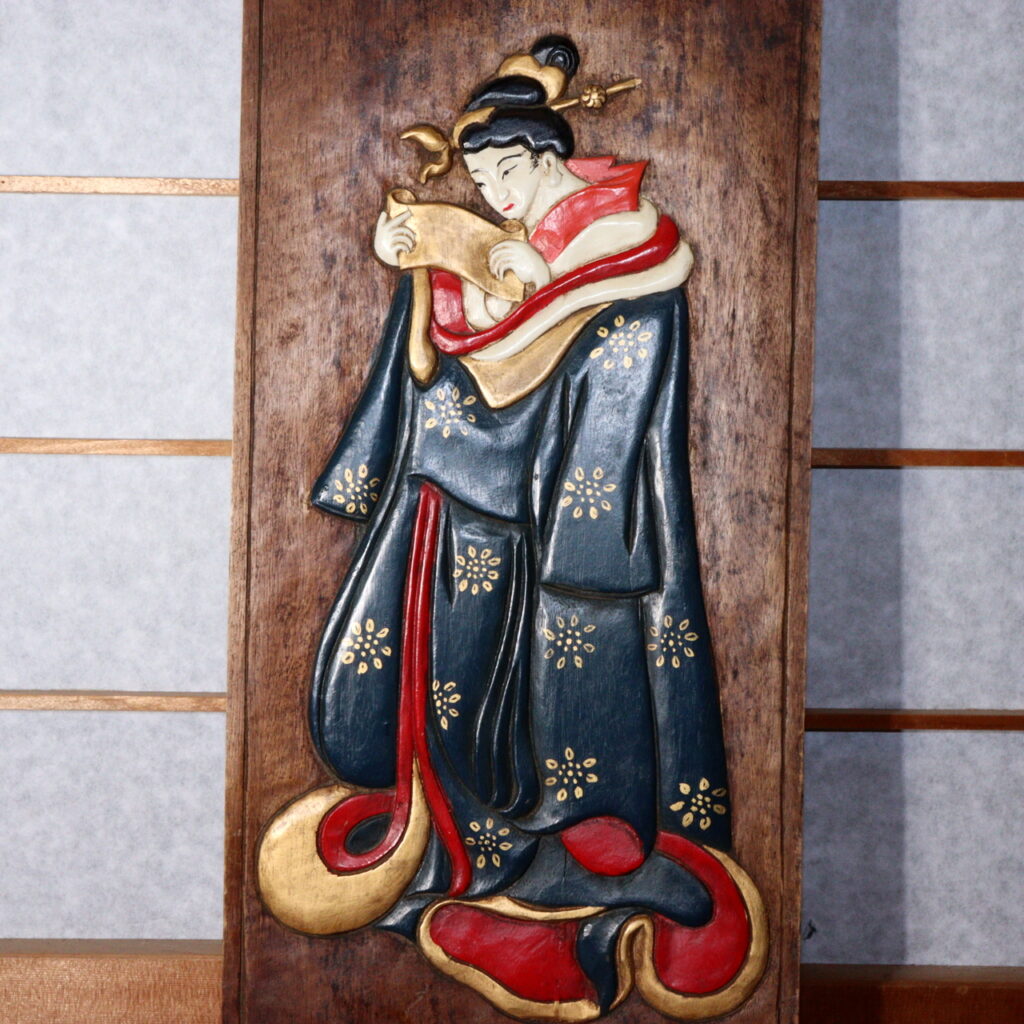
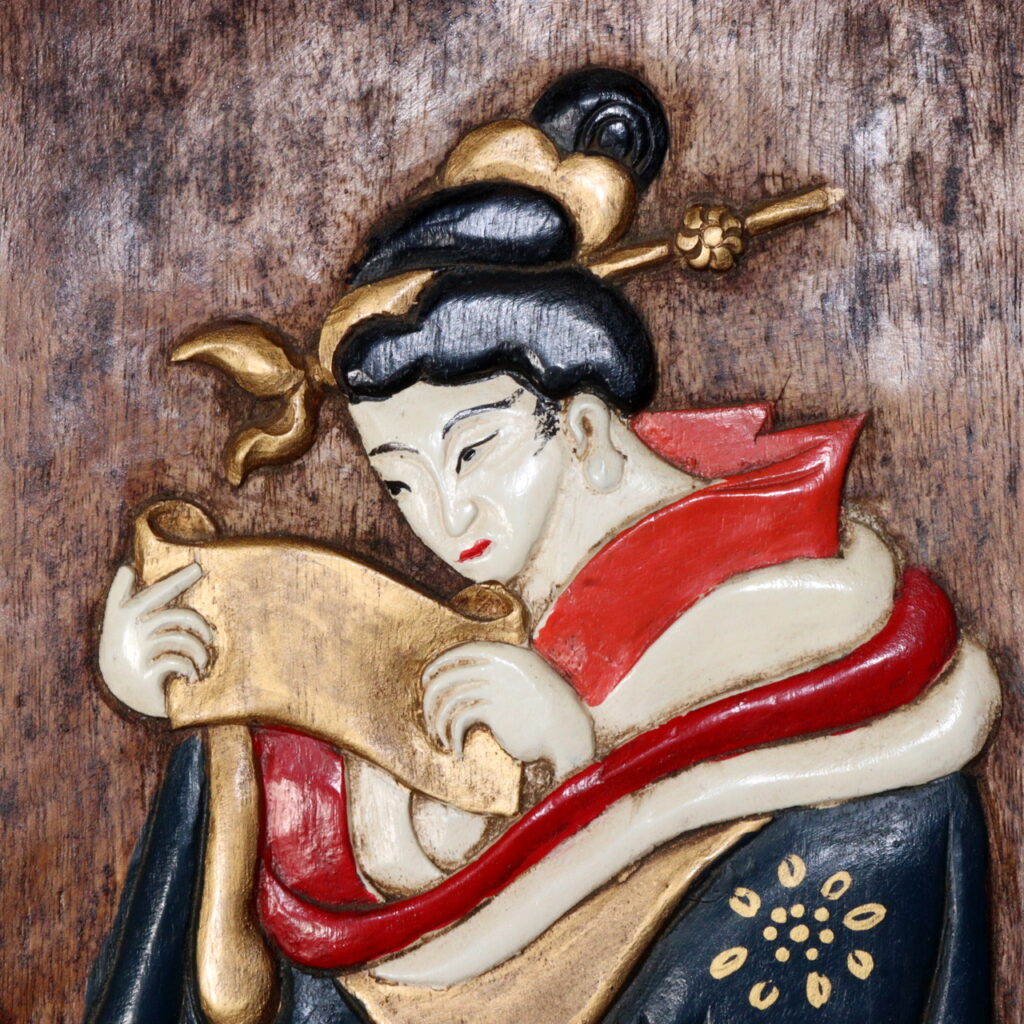
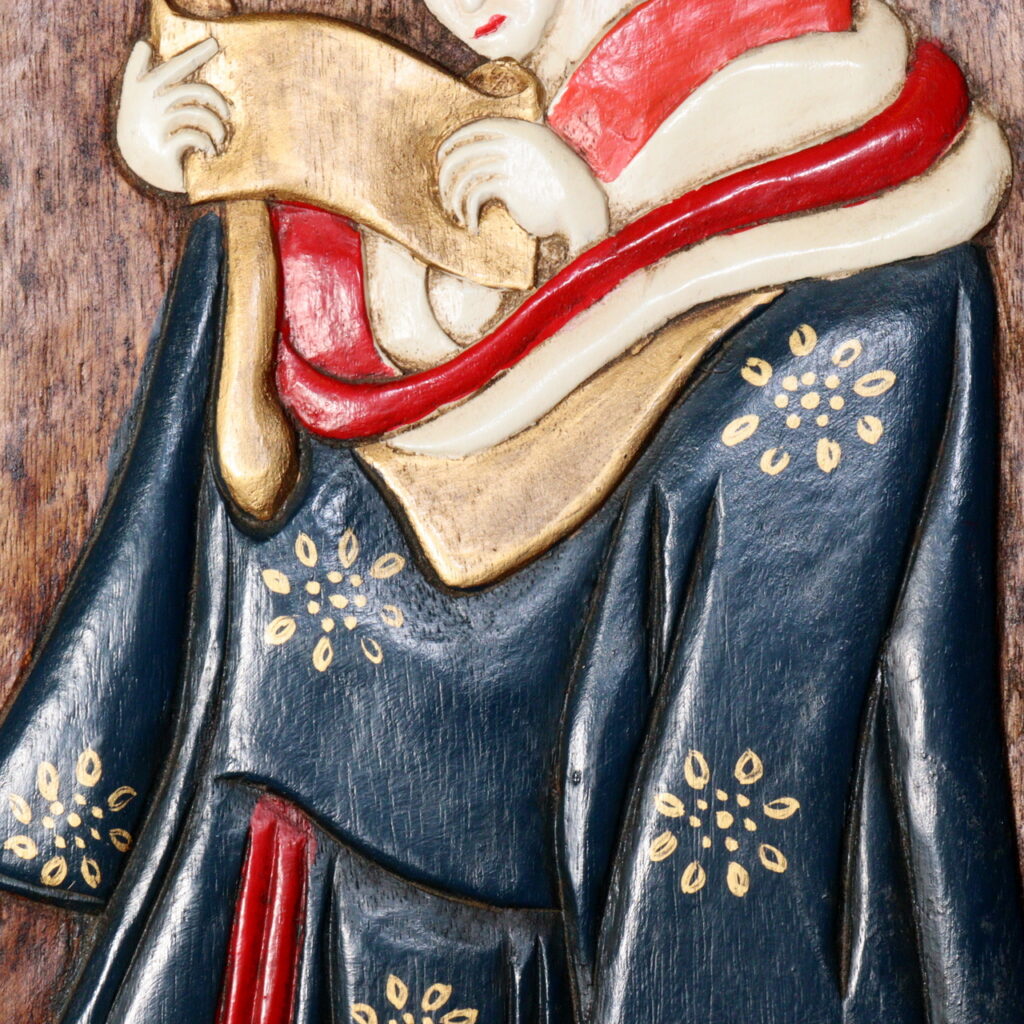
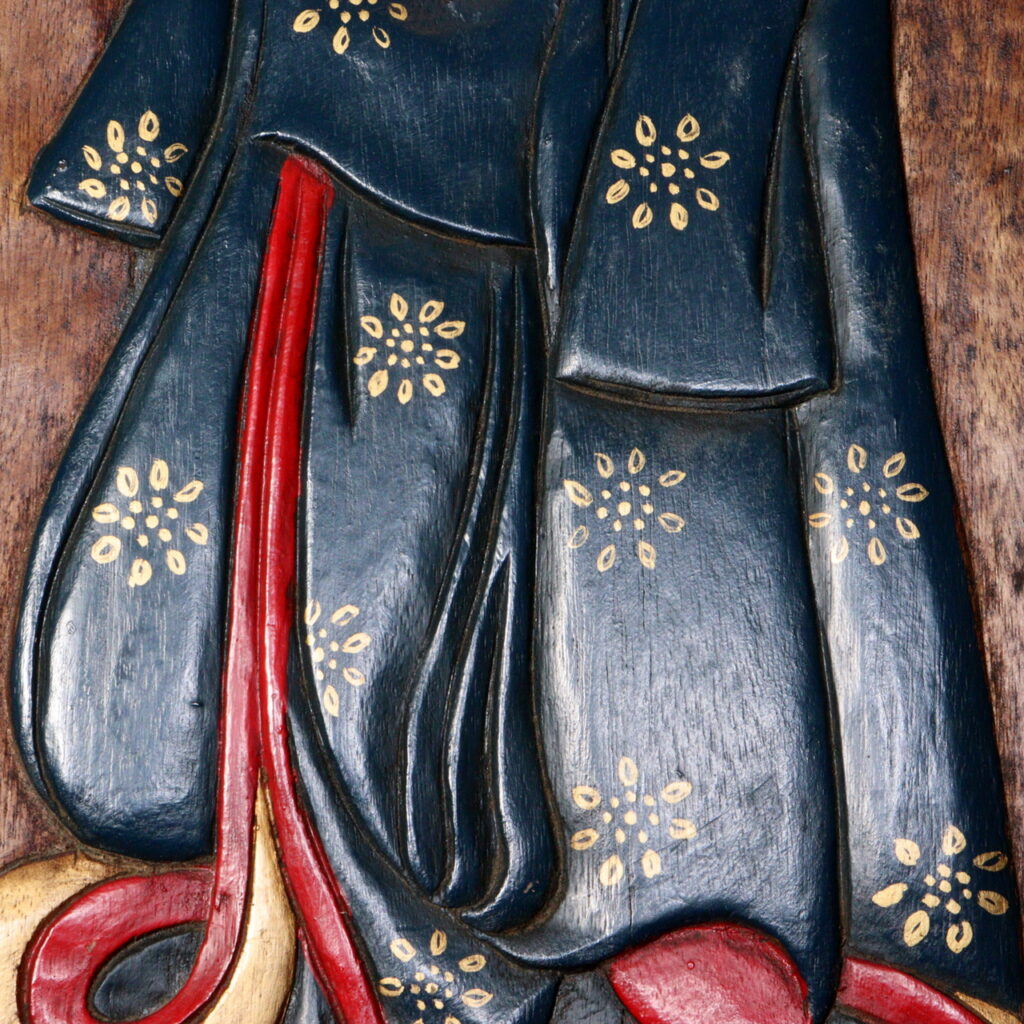
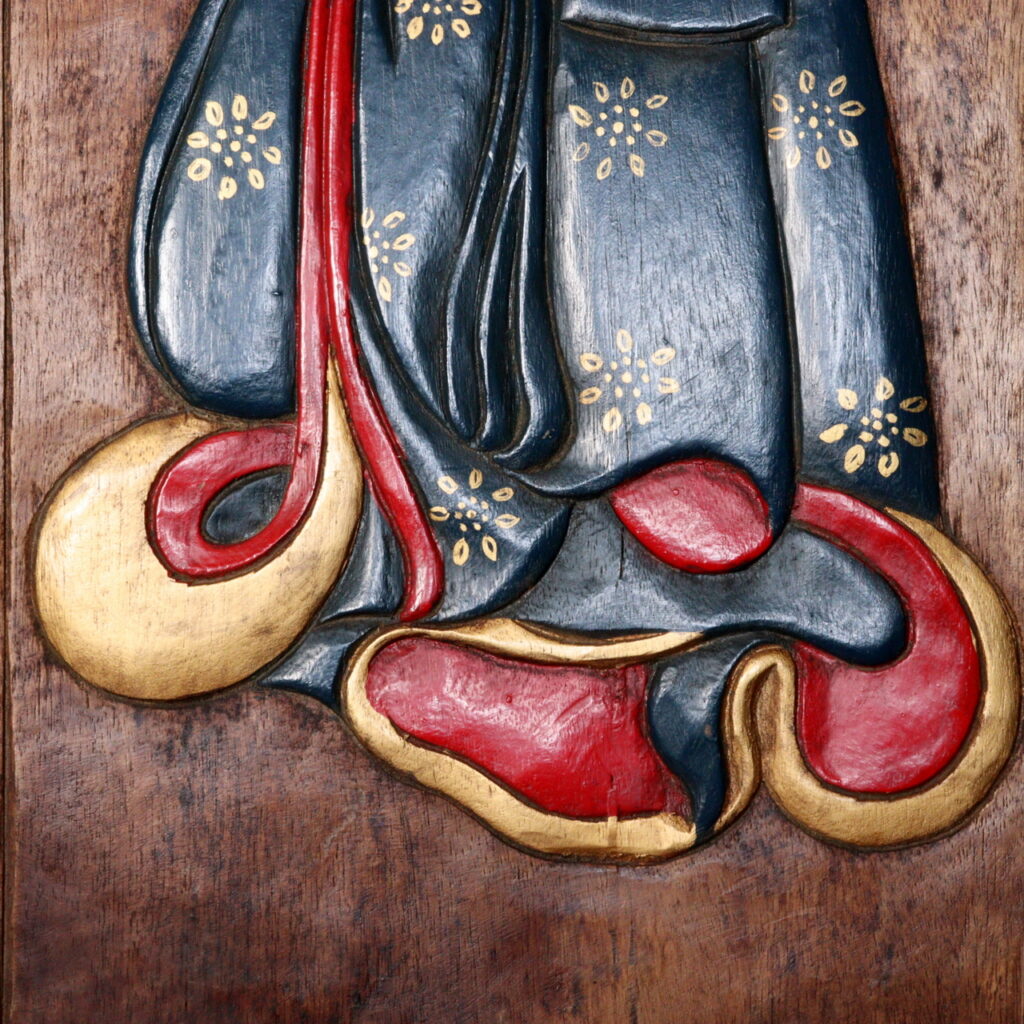
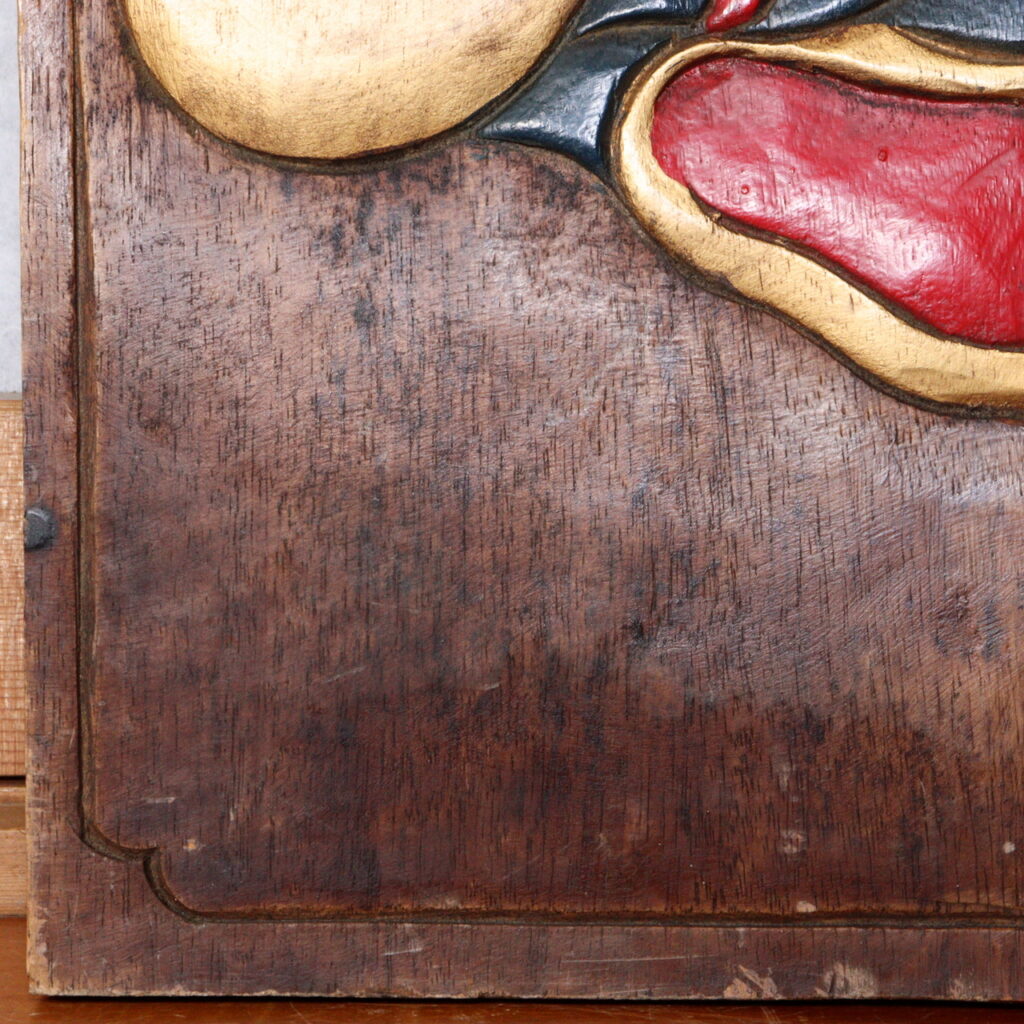
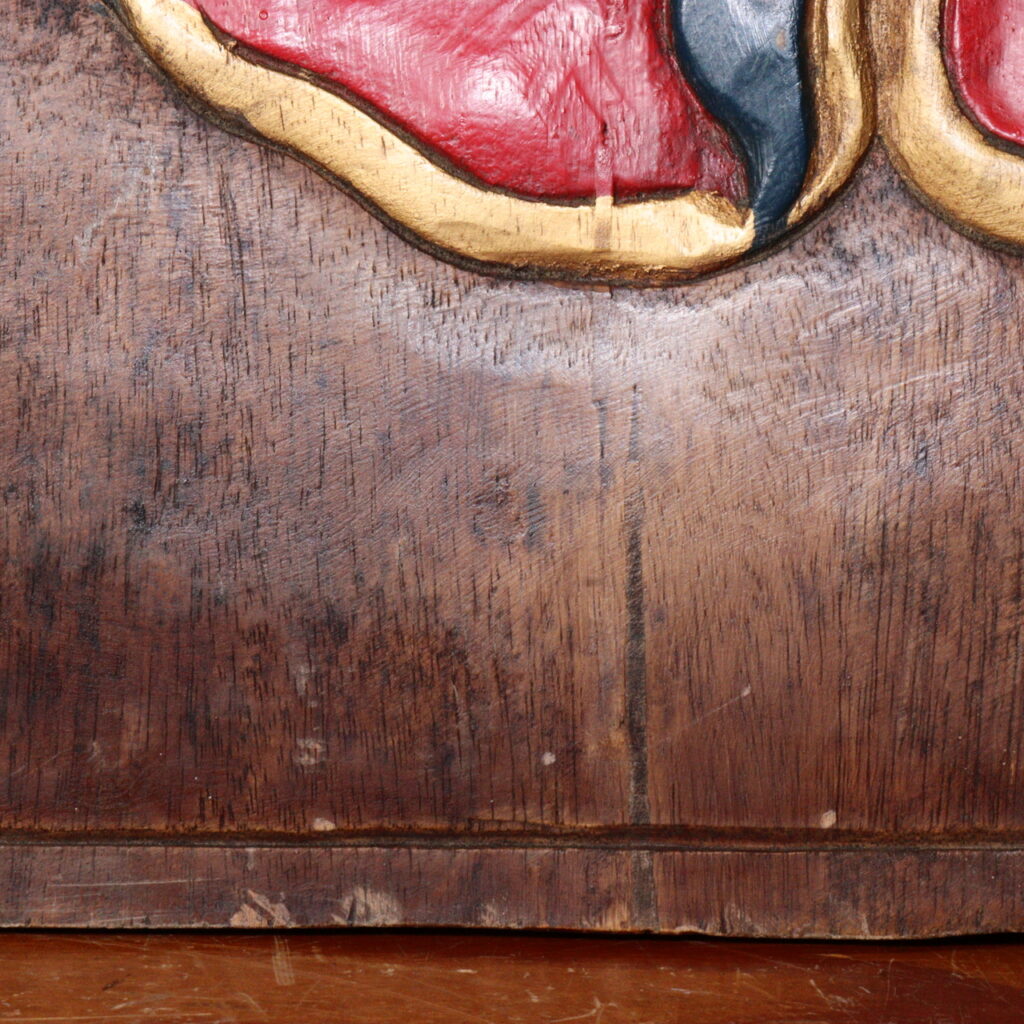
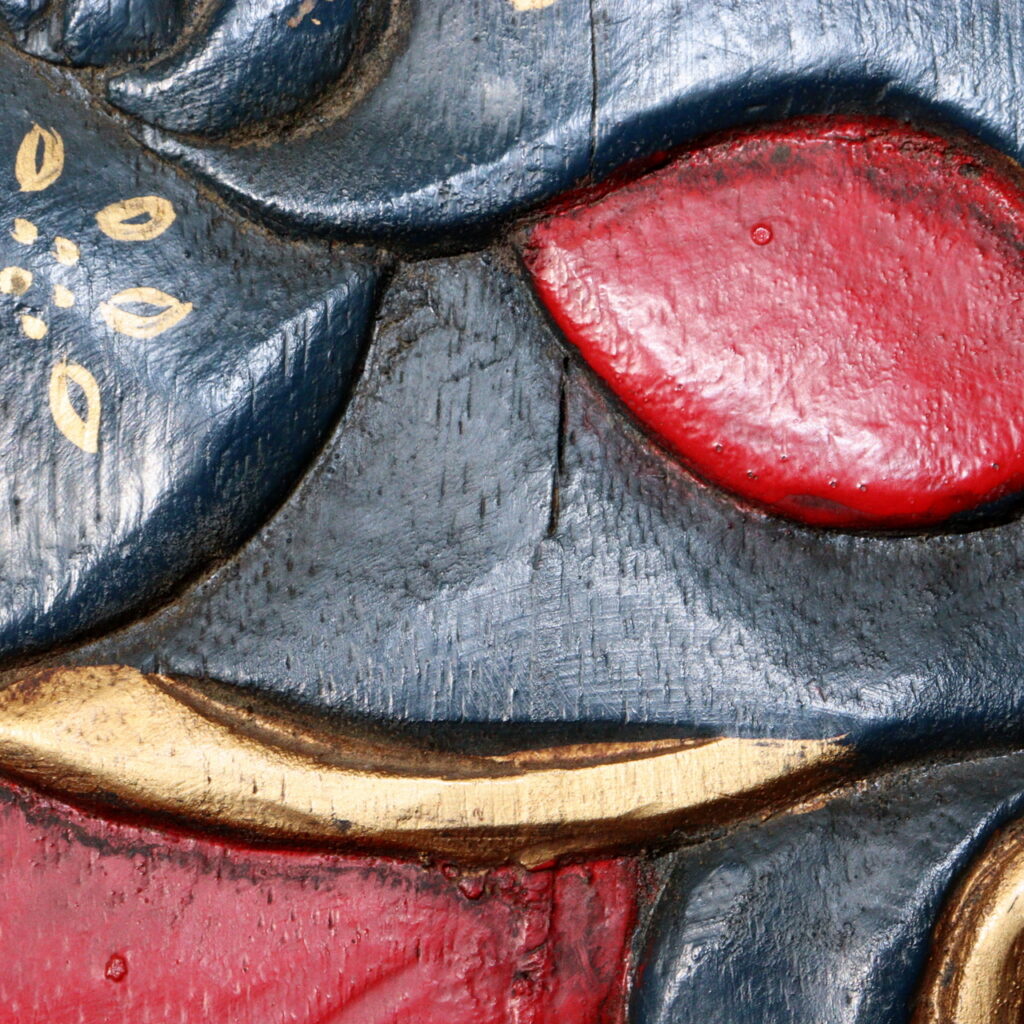
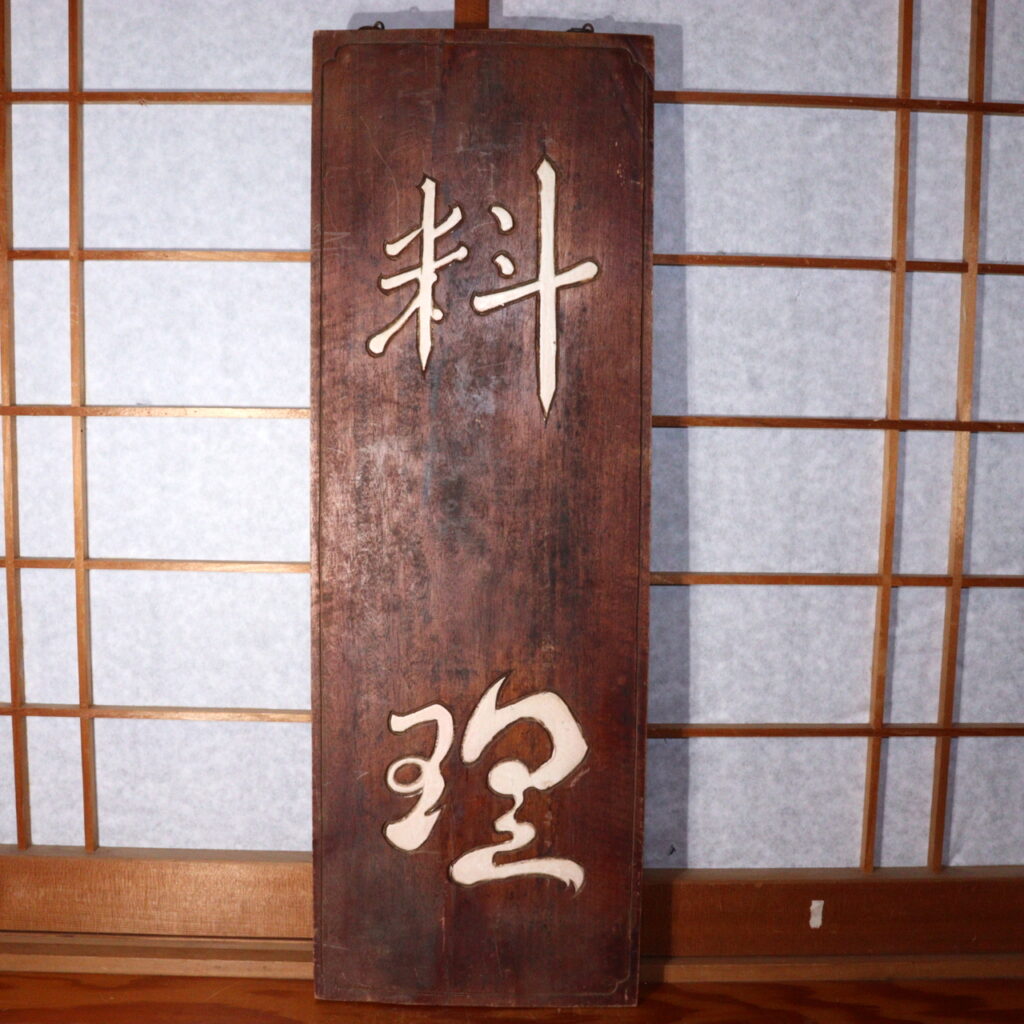
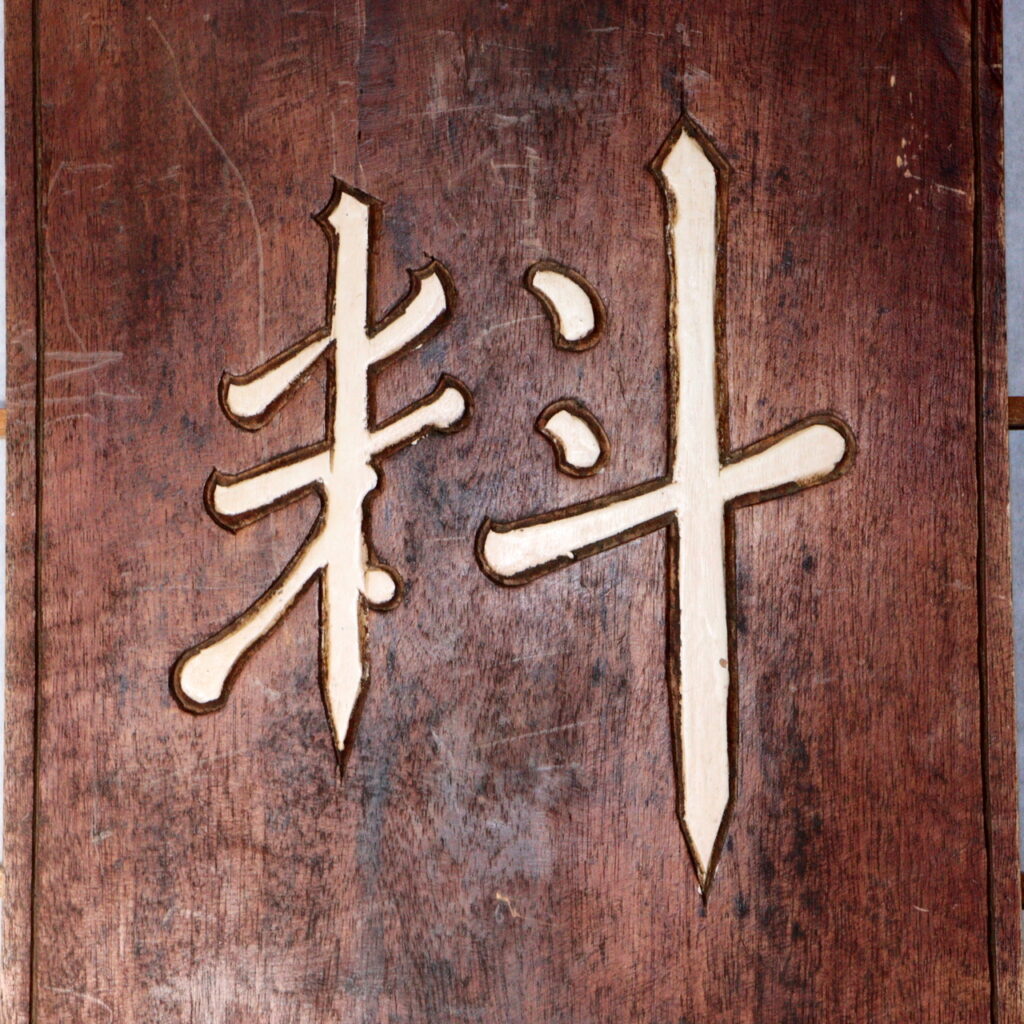
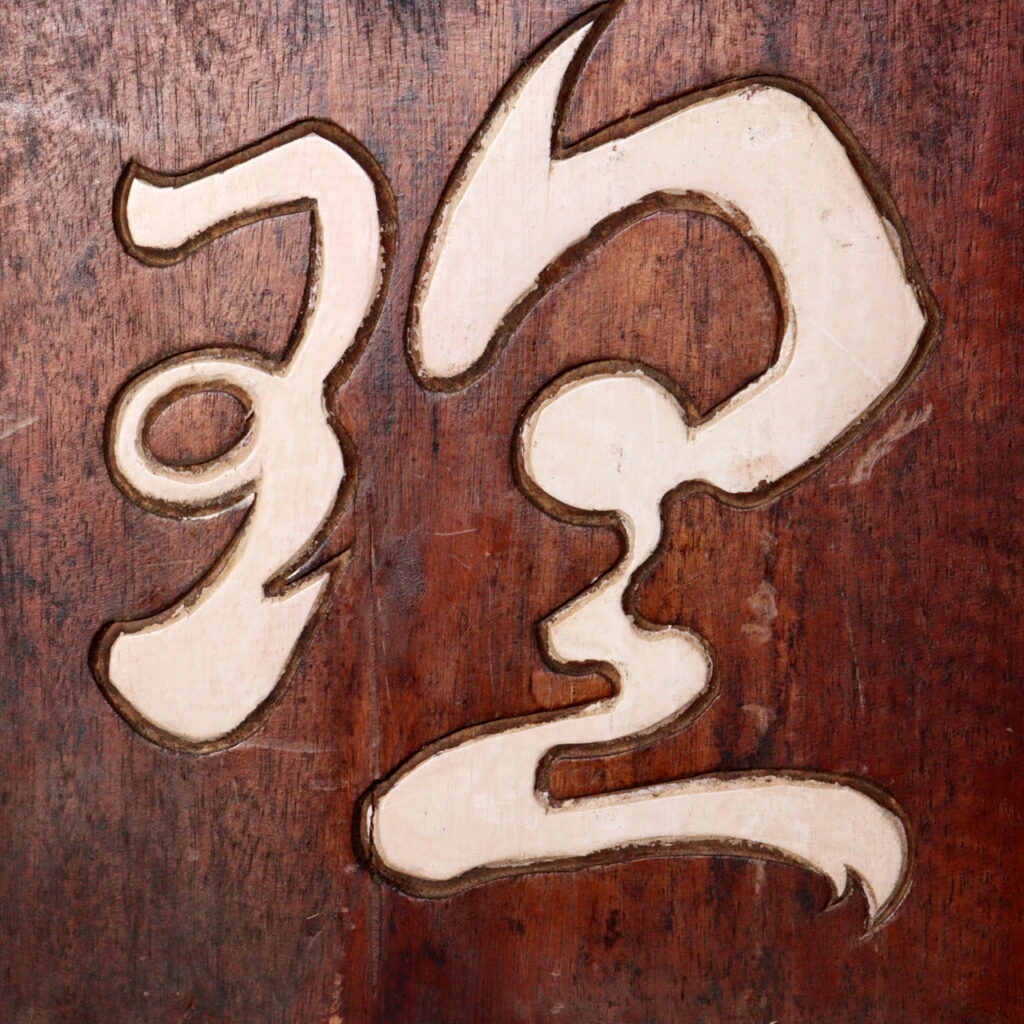
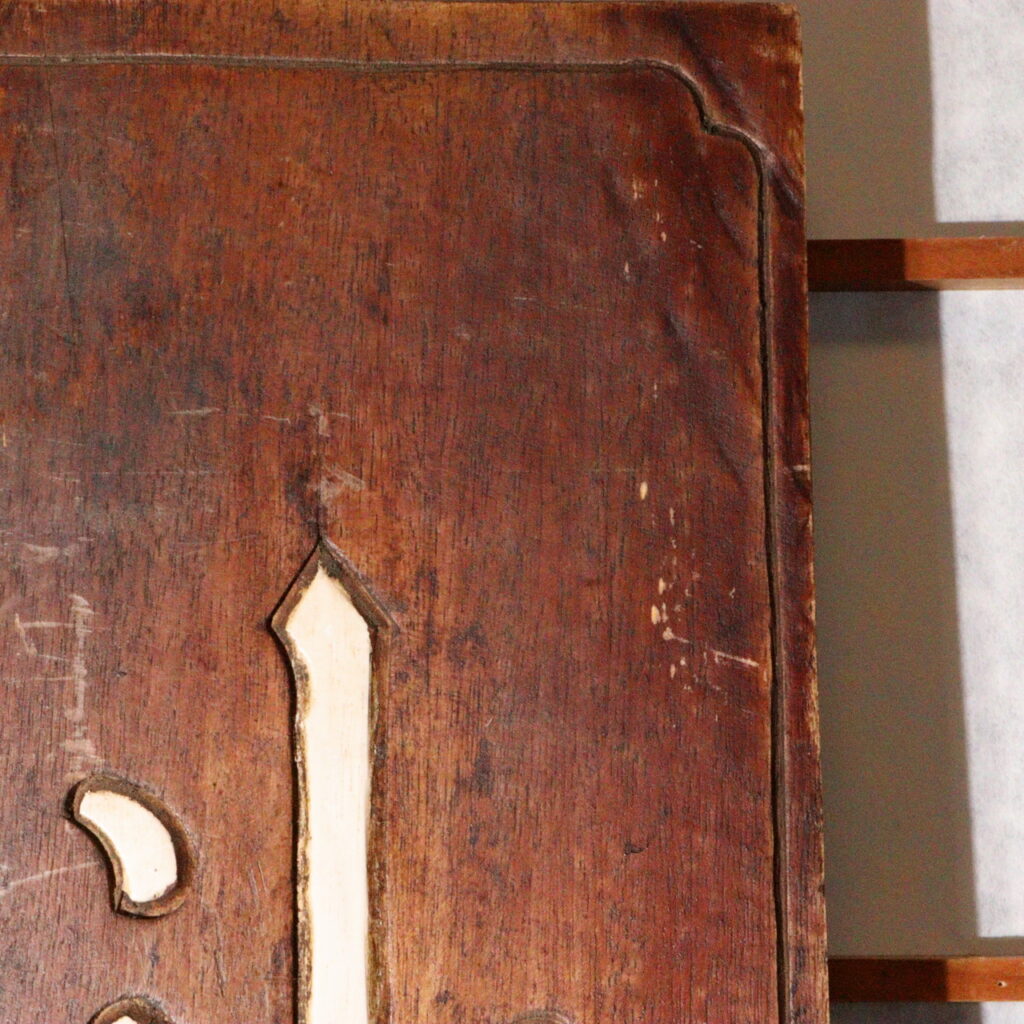
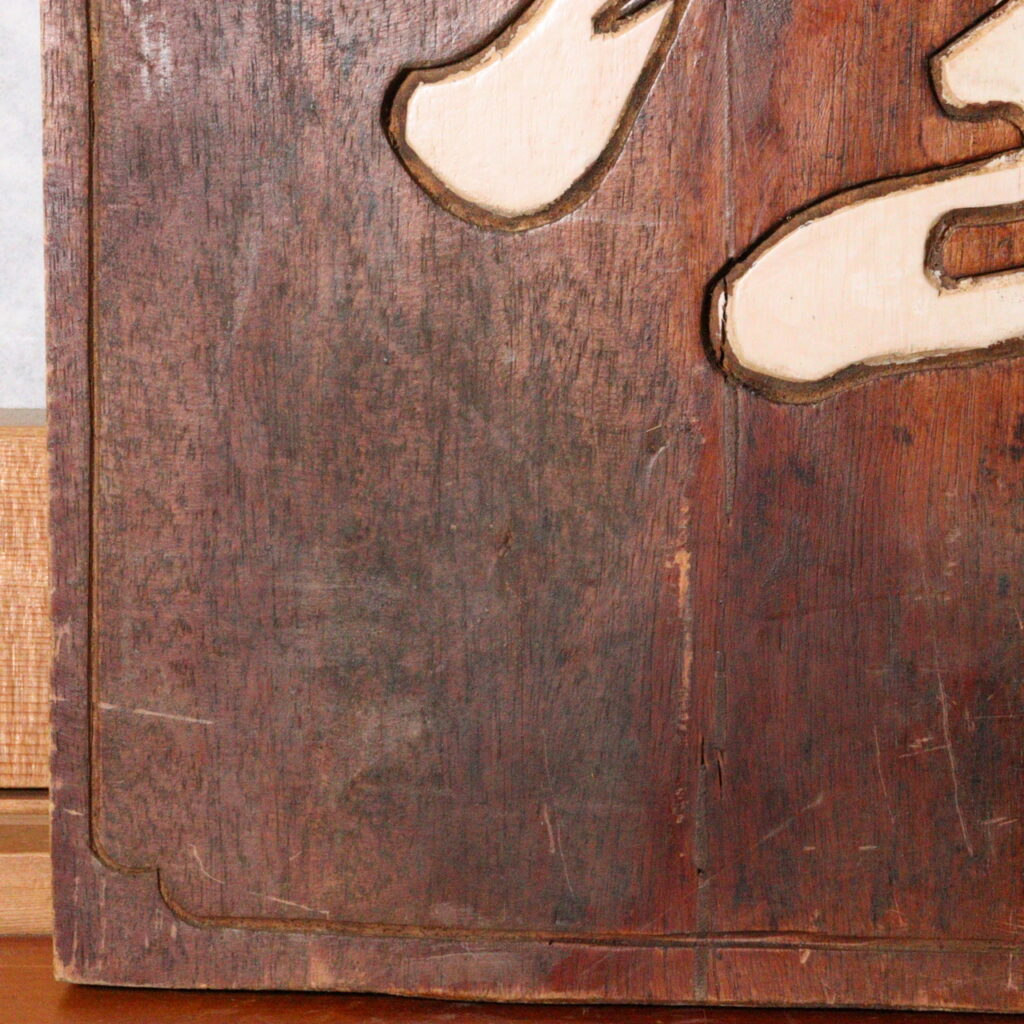
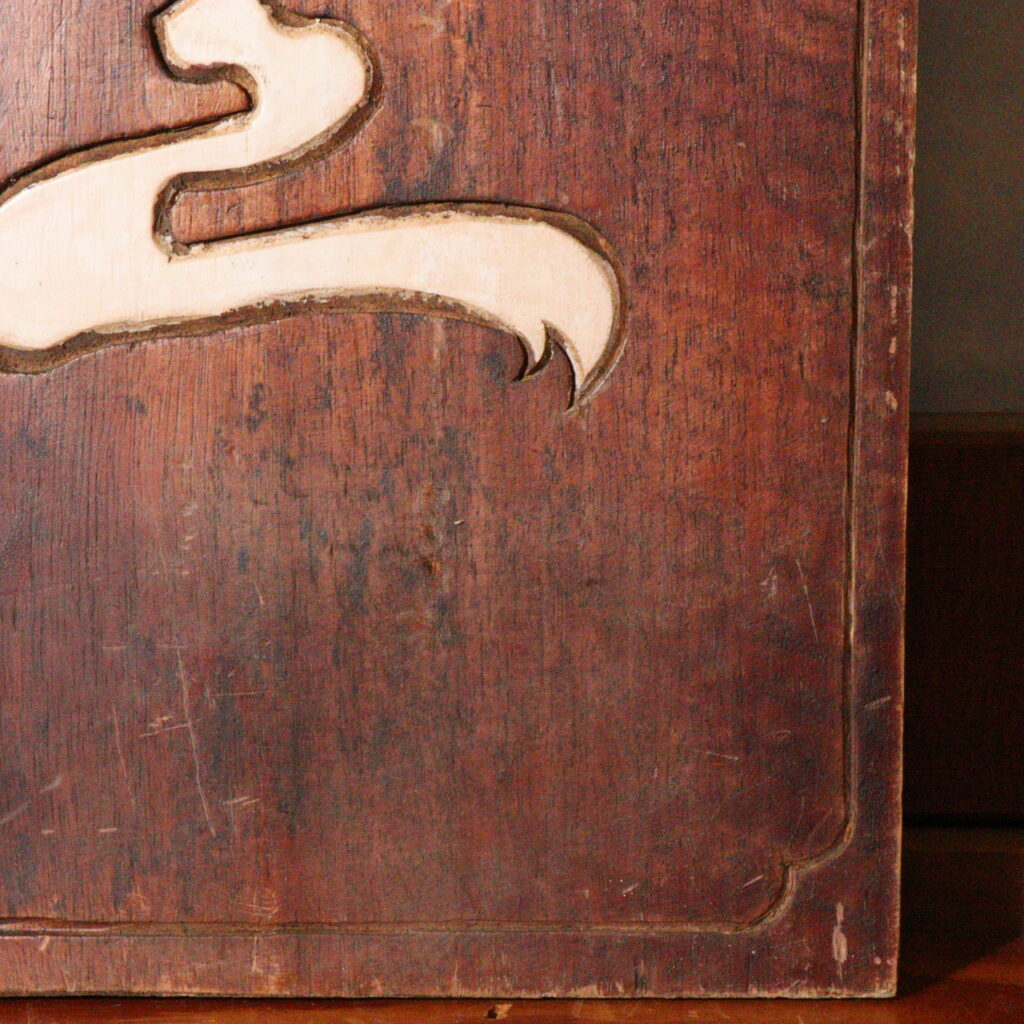
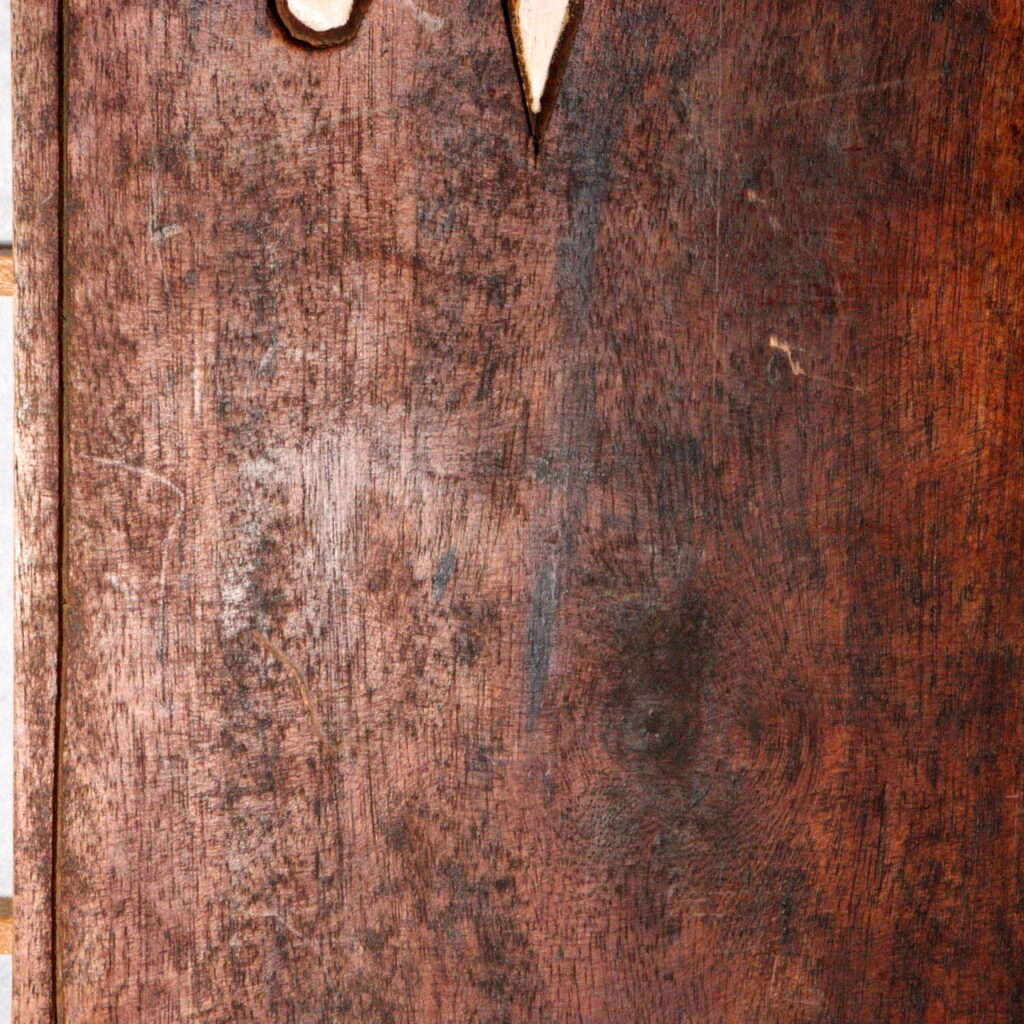
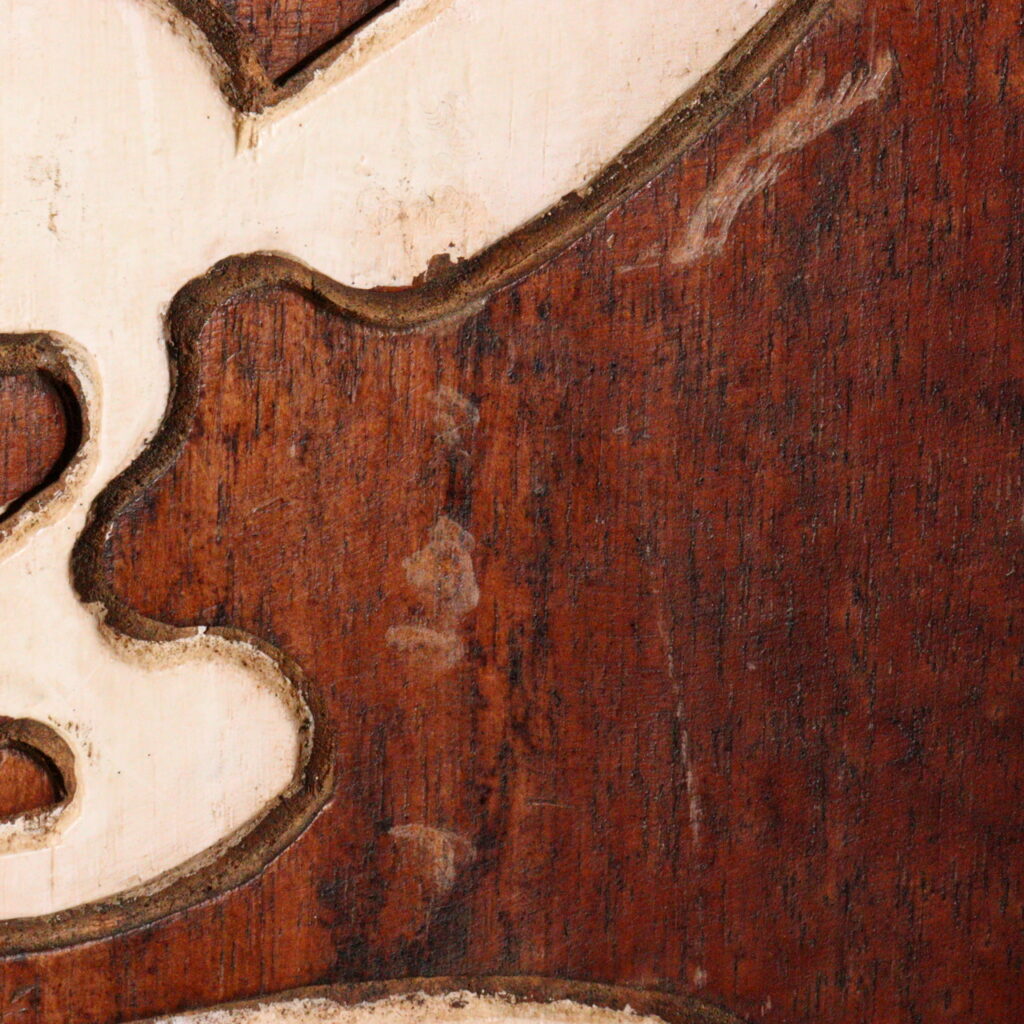
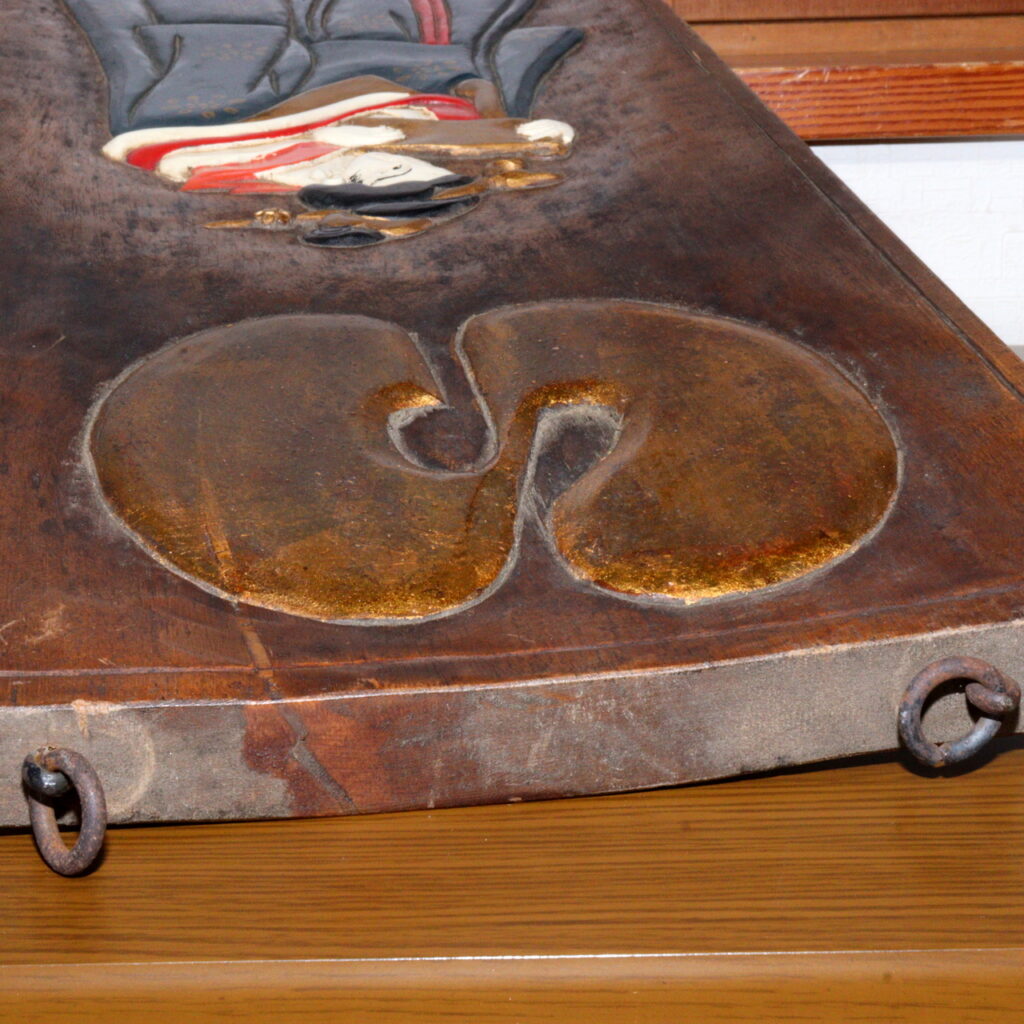
A timeless symbol of Japan’s dining culture and craftsmanship
Among the many treasures of Japanese antiques, few pieces capture the essence of daily life, artistry, and tradition as gracefully as the wooden restaurant signboard, known in Japan as kanban. This striking piece, dating from the Meiji to early Showa period (late 19th to early 20th century), once adorned the entrance of a ryotei — a refined traditional restaurant where cuisine met aesthetics, and hospitality itself became an art form.
The Story Behind This Piece
During Japan’s Meiji era (1868–1912), the country underwent a remarkable transformation — modernization on the surface, yet a deep reverence for traditional craftsmanship beneath.
In that period, wooden kanban (shop and restaurant signboards) were more than simple identifiers. They were visual stories, carved and painted by artisans who infused each work with individuality and meaning.
This particular ryotei signboard is a fine example of that tradition. It features a beautifully carved image of an Edo-style courtesan (Oiran or Geisha) holding a scroll, symbolizing elegance, refinement, and poetic charm — values deeply tied to the Japanese ideal of omotenashi (hospitality).
Above her, the gold-leaf crest (resembling a stylized ginkgo motif) suggests the name or emblem of the establishment. The combination of red, indigo, and gold pigments reflects the luxurious yet dignified atmosphere that characterized high-class restaurants of the era.
Each detail — from the gentle expression of the figure to the deliberate brushwork in gold — echoes the aesthetics of Meiji-period decorative arts, where practicality and artistry were harmoniously intertwined.
The Beauty and Craftsmanship
The artistry of this wooden kanban lies in its synthesis of sculpture, painting, and storytelling.
The wood grain remains visible beneath the layers of natural pigment, giving the piece both warmth and texture. The carved courtesan’s flowing robes, highlighted with gold and vermilion accents, display the traditional Japanese craftsmanship (shokunin waza) that valued balance, restraint, and timeless beauty.
Unlike mass-produced signage of the modern age, this was a handcrafted emblem of identity — one that conveyed the reputation and prestige of the restaurant it represented.
The surface bears the soft patina of time, where touch, light, and air have shaped its color into a gentle harmony that only decades of history can create. In this way, it embodies the wabi-sabi philosophy — the appreciation of imperfection and impermanence that defines so much of Japanese art and culture.
Its Value for Collectors Worldwide
For collectors and cultural historians, antique Japanese signboards offer a rare glimpse into the country’s urban and social life during the Meiji and early Showa periods.
This piece, in particular, bridges multiple disciplines — folk art, calligraphy, sculpture, and design — making it a significant work of visual culture.
In today’s world, such signboards have found new homes not only in private collections but also in interior design. Many enthusiasts incorporate them into modern spaces as wall décor, combining traditional Japanese design with contemporary minimalism.
To collectors abroad, they are not merely antiques — they are cultural heritage objects, preserving the story of how Japan’s aesthetic values evolved from Edo elegance to Meiji modernity.
Owning a kanban like this is akin to owning a fragment of history — a piece that once witnessed laughter, conversation, and the quiet ritual of shared meals in an old ryotei. It carries both artistry and atmosphere, offering a tangible connection to the Japan of a century ago.
Conclusion and Product Link
This antique wooden restaurant signboard stands as a poetic relic of Japan’s hospitality culture — where craftsmanship met storytelling, and where even a simple sign could become a work of art.
Its graceful figure, gold highlights, and aged wood speak softly of a past that still lives in every carved line.
You can view this piece here:
👉 Koedo Sun Art – Product Page
If this item has already found its new home, please explore our other Japanese antique collections here:
🔗 https://koedo-sun-art.com
Category: Item Stories
Tags: Japanese antiques, Meiji, Showa, Kanban, Ryotei, Oiran, Geisha, wood carving, craftsmanship, wabi-sabi, Japanese culture, traditional design